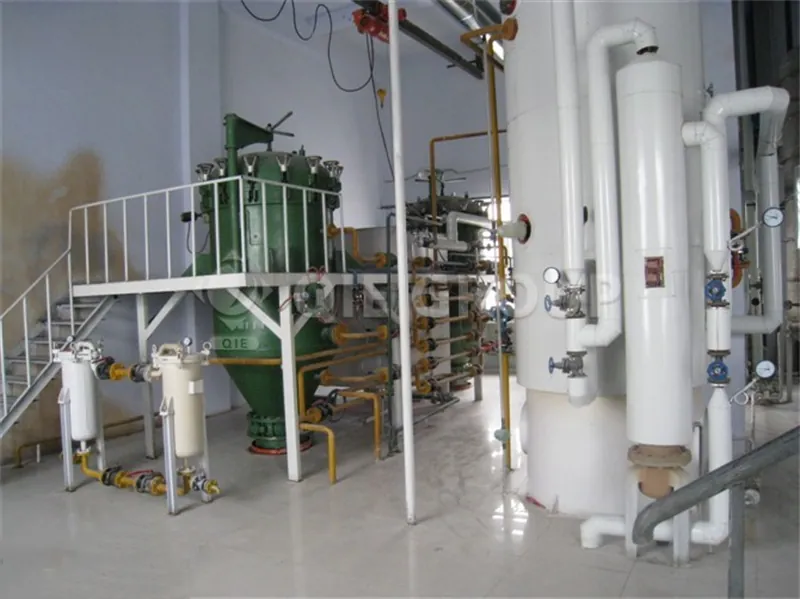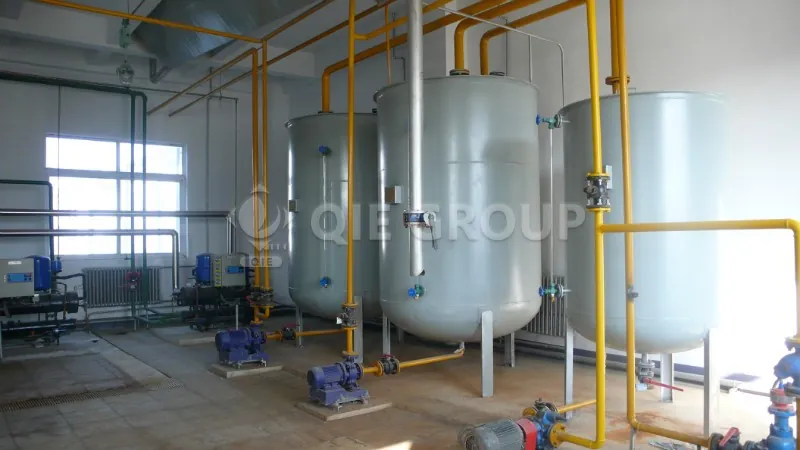

Cottonseed oil contains a large amount of fatty acids needed by the human body, and the content of unsaturated fatty acids is close to 80%, of which the content of linoleic acid, a polyunsaturated fatty acid needed by the human body, accounts for about 50%. Linoleic acid is an essential unsaturated fatty acid for the human body, but it cannot be synthesized by the human body and must be taken from the diet. Linoleic acid helps to lower blood cholesterol. In addition, the content of vitamin E in cottonseed oil is not low, which makes it have good stability and shortening properties, which can extend the shelf life of fried foods, and does not contain trans fatty acids that are harmful to the human body. Therefore, cottonseed oil can be eaten directly as edible oil, can also replace palm oil as a blending raw material, and is also an ideal raw material for producing salad oil, margarine and shortening, and is widely used in the food industry.

The function of cottonseed oil refining machine is to remove impurities in cottonseed crude oil, maintain the biological properties of the oil, and retain or extract useful substances. In fact, the refining equipment does not remove all impurities, but removes them selectively.
(1) Insoluble solid impurities, such as mud, cake powder, fiber, clay, catalyst, etc.
(2) Colloidal impurities, such as free fatty acids, sterols, vitamin E, pigments, vitamins, cottonpol, etc.
(3) Volatile impurities, such as water, alcohols, hydrocarbon solvents, odorous substances, etc.
Most impurities are harmful to the quality and storage safety of oils and fats. For example, water not only affects the transparency of oils and fats, but also causes them to hydrolyze and become rancid; free fatty acids affect the flavor and cause oils and fats to deteriorate; phospholipids can make oils and fats turbid, produce black precipitation, foaming, and bitterness when heated; various pigments directly affect the color of oils and fats, and also cause oils and fats to become rancid; the presence of colloids, sulfur-containing and phosphorus compounds, soap stocks, heavy metal salts, etc., brings difficulties to subsequent processes such as stripping and deacidification.

(1) Degumming: Removing phospholipids, mucus, resin, protein, sugars, trace metals, etc. from crude oil, generally using hydration method, acid refining method, etc.
(2) Deacidification: Neutralize the oil with a food-grade alkaline solution to remove free fatty acids, acid pigments, sulfides, insoluble impurities and trace metals.
(3) Water washing: Wash away soap stock and water-soluble impurities remaining in the oil during the deacidification process.
(4) Dehydration: Use heating vacuum drying method to remove moisture from refined oil.
(5) Decolorization: Use adsorbents such as kaolin, aluminum silicate, activated carbon, etc. to remove various pigments, colloids, oxides, etc. in the oil.
(6) Deodorization: Cottonseed oil deodorization is the process of removing odorous substances by utilizing the difference in volatility between oil products and odorous small molecules. The deodorization process of small cottonseed oil refining equipment is carried out in a refining and deodorizing tank, while large and medium-sized cottonseed oil refining equipment uses a deodorizing tower for deodorization.
(7) Dewaxing or defatting: mainly uses freezing, crystallization or winterization crystallization, fractionation and other methods to remove wax or solid fat in oil.

Globally, countries such as China, India, Pakistan, the United States, Brazil and Turkey have considerable cottonseed oil production. If you have sufficient cottonseed raw materials, then getting involved in cottonseed oil production may be a business decision worth considering. QIE GROUP is strong and can not only provide you with professional cottonseed oil refining equipment, but also cottonseed oil pressing equipment, solvent extraction equipment and complete cottonseed oil production line turnkey projects. Sincerely welcome to contact us!






